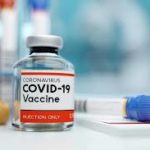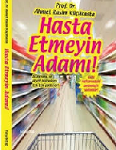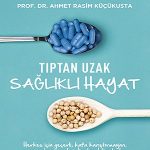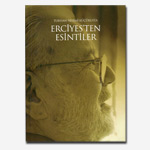BAZI AŞI ADAYLARININ AİDS RİSKİNİ ARTIRMA TEHLİKESİ VAR

İndependent Türkçe‘ nin haberi:
Bir grup araştırmacı, geliştirilmekte olan bazı koronavirüs aşı adaylarının HIV riskini artırabileceğine dair uyarıda bulundu.
Araştırmacılar, Pazartesi günü tıp dergisi The Lancet’ te bir uyarı yazısı yayımladı. Yazıda aktarılana göre 4 koronavirüs aşı adayında kullanılan ve adenovirüs 5 (Ad5) adı verilen genetiği değiştirilmiş bir virüsün, geçmişte AIDS virüsünün bulaşma riskini artırdığı görülmüştü.
Soğuk algınlığı da dahil olmak üzere bir dizi hastalığa neden olan ve sık rastlanan adenovirüsler, bazen genetik düzenlemelerle etkisiz hale getiriliyor ve aşılarda kullanılıyor.
Science News’ ün haberine göre 2004’te başlatılan ve STEP adı verilen plasebo kontrollü bir AIDS aşısı denemesinde de Ad5 virüsü kullanılmıştı.
Çalışmanın ön analizlerinde, aşıyı olmadan önce Ad5’i doğal yollarla kapan bazı erkeklerin, özellikle AIDS virüsüne karşı savunmasız hale geldiği fark edilmişti.
Ad5’in HIV riskini neden artırdığı belirlenemese de bu bulguların ardından Dr. Anthony Fauci liderliğindeki ABD Ulusal Sağlık Enstitüleri, aşılarda bu virüs suşunun kullanılmamasını önermişti.
Bu nedenle araştırmacılar, Kovid-19 aşılarını özellikle de gelişmemiş ülkelerde dağıtmadan önce bu yan etkiyle ilgili daha fazla araştırma yapılması gerektiğini ifade etti.
Lancet’teki uyarı yazısının yazarlarından Profesör Lawrence Corey, şu açıklamalarda bulundu:
Sahra Altı bir Afrika ülkesinde olsaydım ülkemde uygulanacak Sars-CoV-2 aşısından ne beklerdim? Buna karar vermem gerekseydi, birçok alternatif varken Ad5 kullanılan bir aşıyı seçmezdim.
New York Post’ un aktardığına göre Kovid-19 aşısında Ad5 virüsünü kullanan şirketlerden biri, Kaliforniya merkezli ImmunityBio. Ancak şirketin CEO’su Patrick Soon-Shiong, bu virüs suşunu yüzde 90 oranında etkisiz hale getirdiklerini söylüyor.
Ad5 tabanlı aşı adaylarından bir diğeri de Çin merkezli CanSino Biologics şirketi tarafından geliştiriliyor. Öte yandan şirket araştırmacıları, uyarıların farkında olduklarını ve denemeler sırasında bu HIV riskini takip edeceklerini söylüyor.
Genetiği değiştirilen Ad5 virüsünü kullanan diğer aşı adaylarının denemeleri de Rusya ve Pakistan’da yürütülüyor.
Johnson & Johnson ve AstraZeneca tarafından geliştirilen ve dünya çapında ün kazanan Kovid-19 aşılarında ise farklı adenovirüsler kullanılıyor. Bu adenovirüslerden herhangi birinin HIV riskini artırdığına dair kanıt bulunmuyor.
***
Lancet‘ de “Use of adenovirus type-5 vectored vaccines: a cautionary tale” başlıklı makale:
We are writing to express concern about the use of a recombinant adenovirus type-5 (Ad5) vector for a COVID-19 phase 1 vaccine study, (1) and subsequent advanced trials. Over a decade ago, we completed the Step and Phambili phase 2b studies that evaluated an Ad5 vectored HIV-1 vaccine administered in three immunisations for efficacy against HIV-1 acquisition (2, 3).
Both international studies found an increased risk of HIV-1 acquisition among vaccinated men (2, 4).
The Step trial found that men who were Ad5 seropositive and uncircumcised on entry into the trial were at elevated risk of HIV-1 acquisition during the first 18 months of follow-up (5).
The hazard ratios were particularly high among men who were uncircumcised and Ad5 seropositive, and who reported unprotected insertive anal sex with a partner who was HIV-1 seropositive or had unknown serostatus at baseline, suggesting the potential for increased risk of penile acquisition of HIV-1. Importantly for considering the potential use of Ad5 vectors for COVID-19 infection, a similar increased risk of HIV infection was also observed in heterosexual men who enrolled in the Phambili study (4).
This effect appeared to persist over time. Both studies involved an Ad5 construct that did not have the HIV-1 envelope. In another HIV study, done only in men who were Ad5 seronegative and circumcised, a DNA prime followed by an Ad5 vector were used, in which both constructs contained the HIV-1 envelope (6).
No increased risk of HIV infection was noted. A consensus conference about Ad5 vectors held in 2013 and sponsored by the National Institutes of Health indicated the most probable explanation for these differences related to the potential counterbalancing effects of envelope immune responses in mitigating the effects of the Ad5 vector on HIV-1 acquisition (7).
The conclusion of this consensus conference warned that non-HIV vaccine trials that used similar vectors in areas of high HIV prevalence could lead to an increased risk of HIV-1 acquisition in the vaccinated population. The increased risk of HIV-1 acquisition appeared to be limited to men; a similar increase in risk was not seen in women in the Phambili trial (4).
Several follow-up studies suggested the potential mechanism for this increased susceptibility to HIV infection among men. The vaccine was highly immunogenic in the induction of HIV-specific CD4 and CD8 T cells; however, there was no difference in the frequency of T-cell responses after vaccination in men who did and did not later become infected with HIV in the Step Study (8).
These findings suggest that immune responses induced by the HIV-specific vaccine were not the mechanism of increased acquisition. Participants with high frequencies of preimmunisation Ad5-specific T cells were associated with a decreased magnitude of HIV-specific CD4 responses and recipients of the vaccine had a decreased breadth of HIV-specific CD8 responses (9), suggesting that pre-existing Ad5 immunity might dampen desired vaccine-induced responses. Additional exploratory studies suggest that Ad5 immune complexes activate the dendritic cell–T cell axis, which might enhance HIV-1 replication in CD4 T cells (10).
Additionally, Ad5-specific CD4 T cells could have an increased susceptibility to HIV infection (11).
In a non-human primate challenge study, infecting rhesus macaques with Ad5 and then immunising them with a replication-incompetent Simian immunodeficiency virus (SIV) vaccine based on Ad5 increased the risk of SIV acquisition from low-dose SIV penile challenge (12).
Furthermore, subclinical inflammation and alterations to epithelial barriers at the inner foreskin, including increased densities of CCR5-positive CD4 T cells could contribute to high rates of sexually transmitted infections, including HIV, in uncircumcised men (13).
On the basis of these findings, we are concerned that use of an Ad5 vector for immunisation against severe acute respiratory syndrome coronavirus 2 (SARS-CoV-2) could similarly increase the risk of HIV-1 acquisition among men who receive the vaccine. Both the HIV and COVID-19 pandemics disproportionately affect vulnerable populations globally. Roll-out of an effective SARS-CoV-2 vaccine globally could be given to populations at risk of HIV infection, which could potentially increase their risk of HIV-1 acquisition. This important safety consideration should be thoroughly evaluated before further development of Ad5 vaccines for SARS-CoV-2, and informed consent documents of these potential risks should reflect the considerable literature on HIV-1 acquisition with Ad5 vectors.
We declare no competing interests.
















